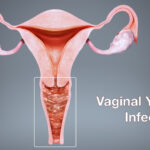How To Use CBD for Candida Infections (Yeast)

Candida is a type of yeast that normally lives on the skin and mucous membranes of the body, including the mouth, gut, and vagina. Under certain conditions, such as a weakened immune system, the use of antibiotics, or hormonal changes, Candida can overgrow and cause an infection.
Candida infections can manifest in a variety of ways, depending on the location of the infection. Common types of Candida infections include:
1. Oral thrush: A fungal infection of the mouth and throat, characterized by white or yellow patches on the tongue, inside of the cheeks, and the back of the throat. It can cause pain, discomfort, and difficulty swallowing.
2. Vaginal yeast infection: A common type of fungal infection in women, characterized by itching, burning, and discharge from the vagina.
3. Invasive candidiasis: A serious infection that occurs when Candida enters the bloodstream and spreads throughout the body. It can cause fever, chills, and other systemic symptoms, and can be life-threatening if not treated promptly.
4. Skin and nail infections: Candida can cause infections of the skin and nails, leading to itching, redness, and inflammation.
Candida infections can occur in people of all ages, genders, and races. Some factors that can increase the risk of candidiasis include a weakened immune system, use of antibiotics, pregnancy, diabetes, and use of corticosteroid medications.
There are different types of candidiasis, including oral thrush, vaginal yeast infections, and invasive candidiasis, which can affect the bloodstream, internal organs, and other parts of the body. The prevalence of Candida infections varies depending on the type and population studied, but it is estimated that up to 75% of women will experience at least one vaginal yeast infection during their lifetime.
What is CBD?
CBD stands for cannabidiol, which is a non-psychoactive compound found in the cannabis plant. It is one of over 100 cannabinoids present in cannabis and is often used for its potential therapeutic benefits.
CBD is believed to have anti-inflammatory, analgesic, anxiolytic, and neuroprotective properties, among others. CBD products are available in various forms, including oils, capsules, gummies, topicals, and more. It is important to note that CBD is not a cure-all and should be used responsibly and under the guidance of a healthcare professional.
In this article, we shall be looking at the use of CBD for Candida infections.
Does CBD work for Candida infections?
Yes, CBD may help with candida infections because some preliminary studies suggest that CBD may have anti-fungal properties that could make it a potential treatment option for Candida infections.
However, while there is some limited research on the potential use of CBD for Candida, the evidence is not yet conclusive. One study published in the Journal of Natural Products found that CBD had potent anti-fungal activity against a variety of strains of Candida. Another study published in the Journal of Fungi also found that CBD had anti-fungal properties and was effective against several species of Candida.
While more research is needed to fully understand the potential benefits of CBD for Candida, there are a few ways in which CBD may help to combat Candida infections:
1. CBD has anti-inflammatory properties: Inflammation can play a role in Candida infections, and CBD has been shown to have anti-inflammatory properties. By reducing inflammation in the body, CBD may be able to help combat Candida infections.
2. CBD may boost the immune system: The immune system plays a crucial role in fighting off infections, including Candida. Some studies suggest that CBD may have immune-boosting properties, which could help to enhance the body’s natural defenses against Candida.
3. CBD may help to reduce stress: Stress can weaken the immune system and make it more difficult for the body to fight off infections. CBD has been shown to have anxiety-reducing properties, which could help to reduce stress and support overall immune function.
While CBD may have the potential as a treatment for Candida infections, it is important to note that more research is needed to fully understand its effects. Additionally, it is always important to consult with a healthcare provider before starting any new treatment, especially if you have a medical condition or are taking any medications.
How To Use CBD for Candida Infections
There are several ways to use CBD for Candida, including:
1. Topical application: CBD-infused creams, lotions, and balms can be applied topically to the affected area to potentially help with Candida infections. These products can be directly applied to the skin, mouth, or genitals.
2. Sublingual consumption: CBD oil can be taken sublingually (under the tongue) and absorbed through the mucous membranes. This method allows for faster absorption and can potentially help with systemic Candida infections.
3. Inhalation: CBD can be inhaled through vaping or smoking. This method allows for quick absorption and can potentially help with respiratory Candida infections.
4. Oral consumption: CBD capsules, edibles, and tinctures can be taken orally and absorbed through the digestive system. This method can potentially help with digestive Candida infections.
5. Suppositories: CBD suppositories can be inserted into the vagina or rectum to potentially help with local Candida infections. This method allows for targeted delivery of CBD to the affected area.
It is important to note that the optimal method of CBD consumption for Candida may vary depending on the individual and the severity of the infection. It is always recommended to consult with a healthcare provider before starting any new treatment. Additionally, it is important to use high-quality CBD products from reputable manufacturers to ensure safety and efficacy.





